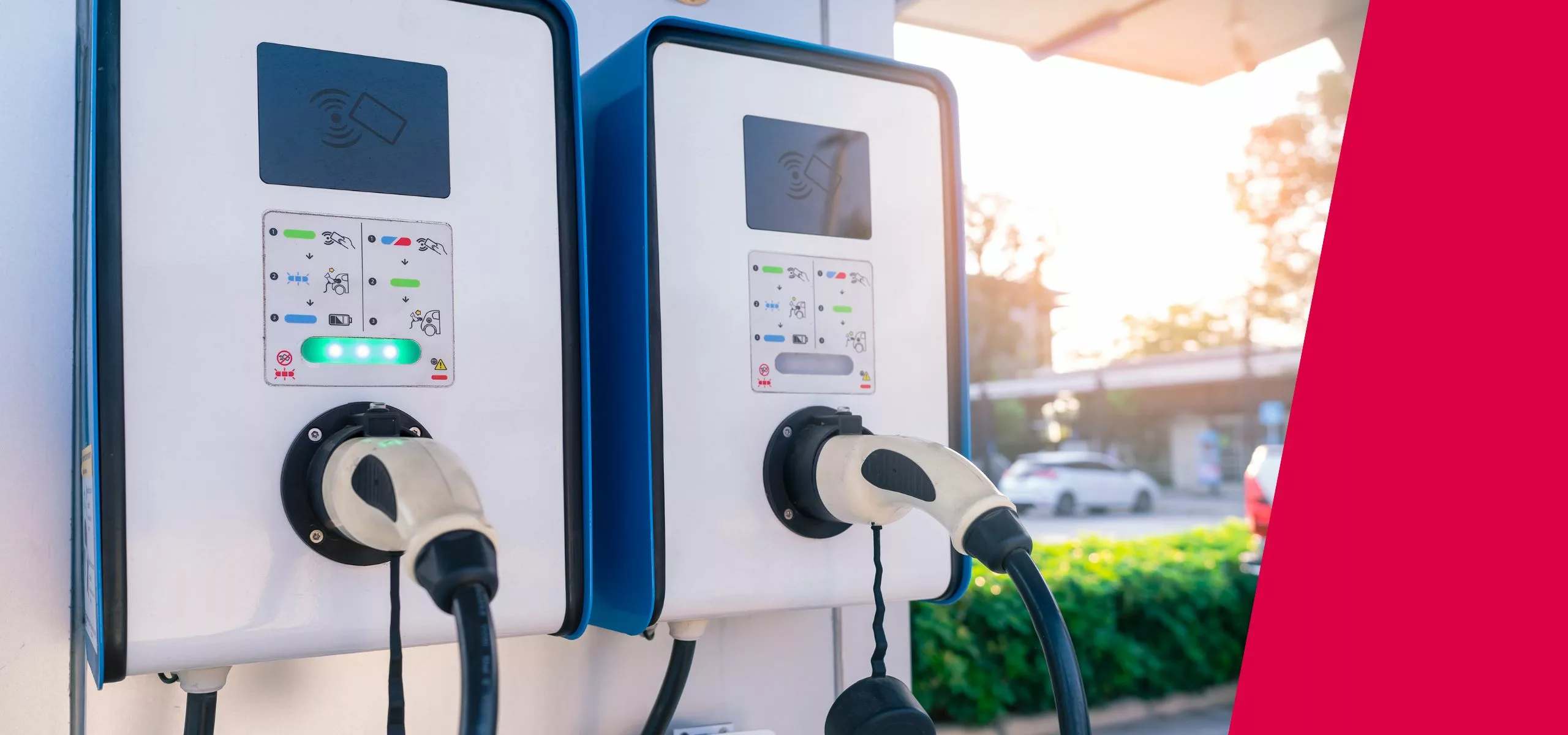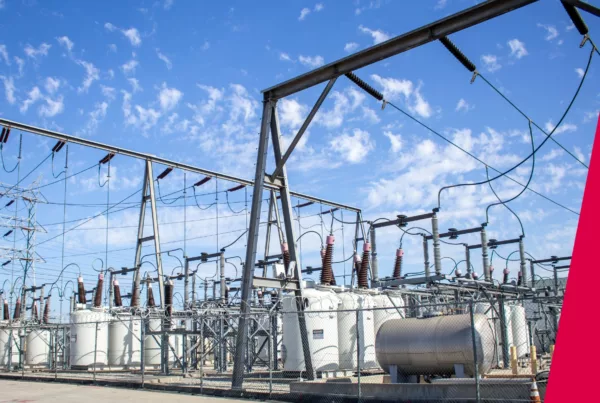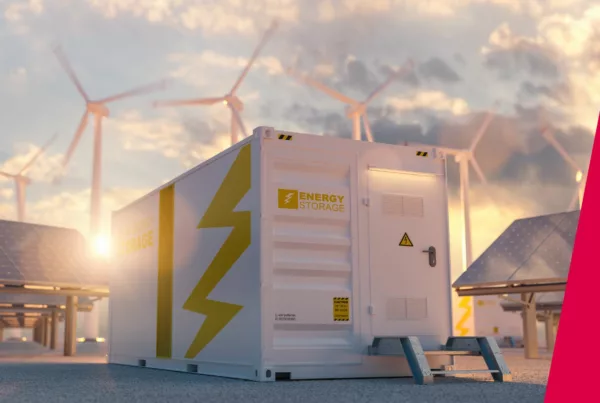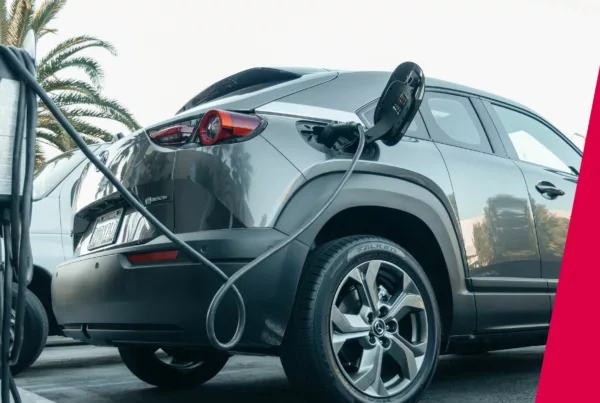OCPP and EV Networks
As the adoption of electric vehicles (EVs) accelerates, the demand for smart, efficient, and scalable charging infrastructure is more critical than ever. One of the key enablers in this evolving ecosystem is the Open Charge Point Protocol (OCPP).
OCPP plays a pivotal role in creating an open, interoperable communication standard between EV charging stations and backend systems, allowing network operators to streamline operations, reduce costs, and enhance energy management capabilities.
In this article, we’ll explore the importance of OCPP in smart EV charging systems and how integrating it with solutions like EpiSensor’s IoT platform can drive greater efficiency and flexibility for your EV networks.
Firstly, what is OCPP?
OCPP, or Open Charge Point Protocol, is a standardised communication protocol used in electric vehicle (EV) charging infrastructure. It facilitates the exchange of information between EV charging stations and a central management system, often referred to as a Charge Point Management System (CPMS) or backend system.
Developed by the Open Charge Alliance, OCPP aims to create interoperability between different charging station manufacturers and network operators. This protocol has become increasingly important as the adoption of electric vehicles grows and the need for efficient, standardised charging infrastructure expands.
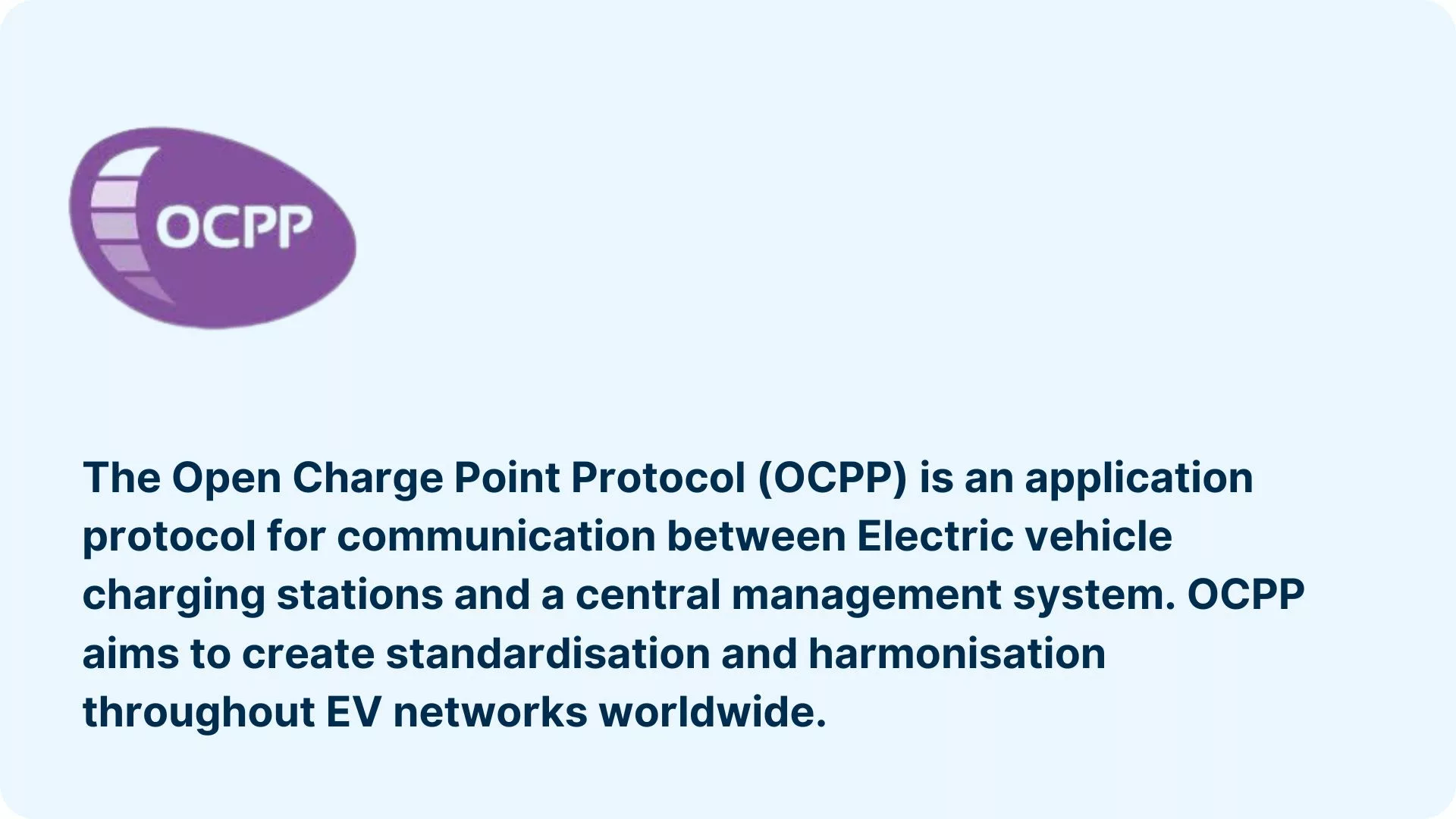
Key Features of OCPP
- Open Standards: OCPP is an open protocol, meaning it’s freely available for use without licensing fees.
- Vendor Neutrality: The protocol allows charging stations from different manufacturers to communicate with various backend systems, promoting flexibility and choice in the EV charging ecosystem and driving industry standardisation.
- Scalability: OCPP capabilities support both large and small EV network charging facilities, making it adaptable and suitable for the current growth rates in EV vehicles (According to Statista, the Electric Vehicles market worldwide is projected to grow by 6.63% (2024-2029) resulting in a market volume of US$1084.0bn in 2029.)
- Real-time Communication: The protocol enables real-time monitoring and control of charging stations, allowing for efficient management and oversight of charging processes.
- Security: OCPP includes security features to protect the communication between charging stations and backend systems.
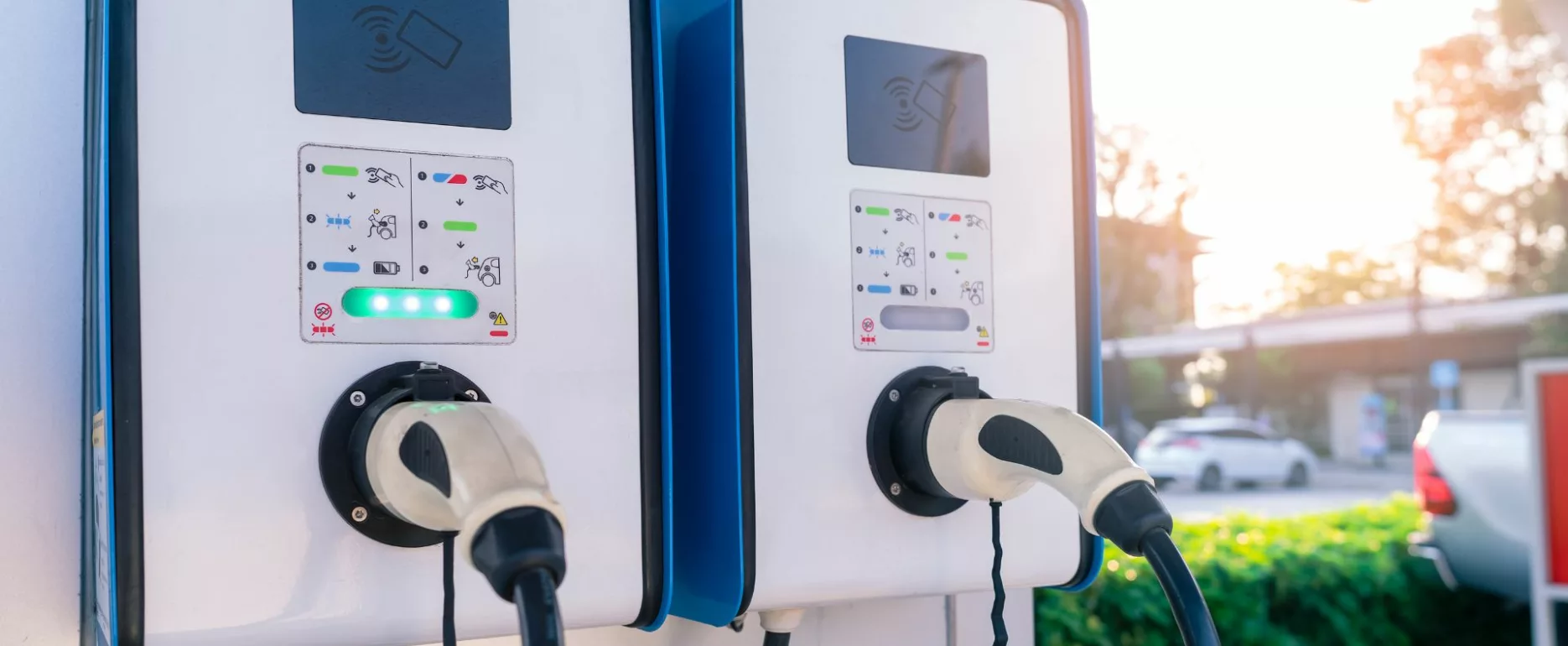
Understanding OCPP Versions
Several versions of OCPP have been released, each introducing new features and improvements:
- OCPP 1.5: An earlier version that uses SOAP for communication.
- OCPP 1.6: Introduced JSON communication and additional functionalities.
- OCPP 2.0: The latest major version, adding support for smart charging, improved security, and device management features.
Need support scaling EV networks?
Connect with our experts to find out more about EpiSensor Smart Grid solutions.
The Benefits of OCPP
- Interoperability: OCPP allows charging station operators to mix and match hardware and software from different vendors, avoiding inflexible and often costly vendor lock-in.
- Cost-effectiveness: By using a standardised protocol, development and integration costs can be reduced for both hardware manufacturers and software providers.
- Future-proofing: As an evolving standard, OCPP helps ensure that charging infrastructure can adapt to future needs and technologies.
- Enhanced Management: The protocol enables comprehensive management features, including remote diagnostics, firmware updates, and usage reporting.
OCPP and EpiSensor Solutions
At EpiSensor, we develop scalable, easy-to-integrate solutions for smart grids, energy management, and demand response, all aimed at accelerating the energy transition. Our extensive experience includes large-scale EV networks, where our technology enables real-time grid condition monitoring, supports the pausing and resuming of battery charging, and drives energy efficiency throughout the network.
EpiSensor’s IoT platform and hardware solutions can be leveraged to enhance OCPP-based EV charging infrastructure, driving efficiency and scalability, in ways such as:
- Advanced Energy Monitoring: EpiSensor’s energy monitoring devices can be easily integrated with EV charging stations to provide detailed energy consumption data, complementing the information exchanged via OCPP.
- Demand Response: By combining OCPP-enabled charging stations with EpiSensor’s award-winning demand response solutions, EV network operators can implement advanced demand response strategies, optimising charging schedules based on grid conditions and energy prices.
- Monitoring Data with Precision: EpiSensor’s data analytics capabilities can process and analyse data from OCPP-enabled charging stations, providing granular insights into usage patterns, energy efficiency, and maintenance needs.
- Integration with Building Management Systems: EpiSensor’s IoT platform can facilitate the integration of EV charging infrastructure with wider building management systems, enabling holistic energy management strategies.
- Wireless Sensor Networks: EpiSensor’s expertise in wireless sensor networks can be applied to create robust, scalable communication infrastructure for OCPP-based charging systems.
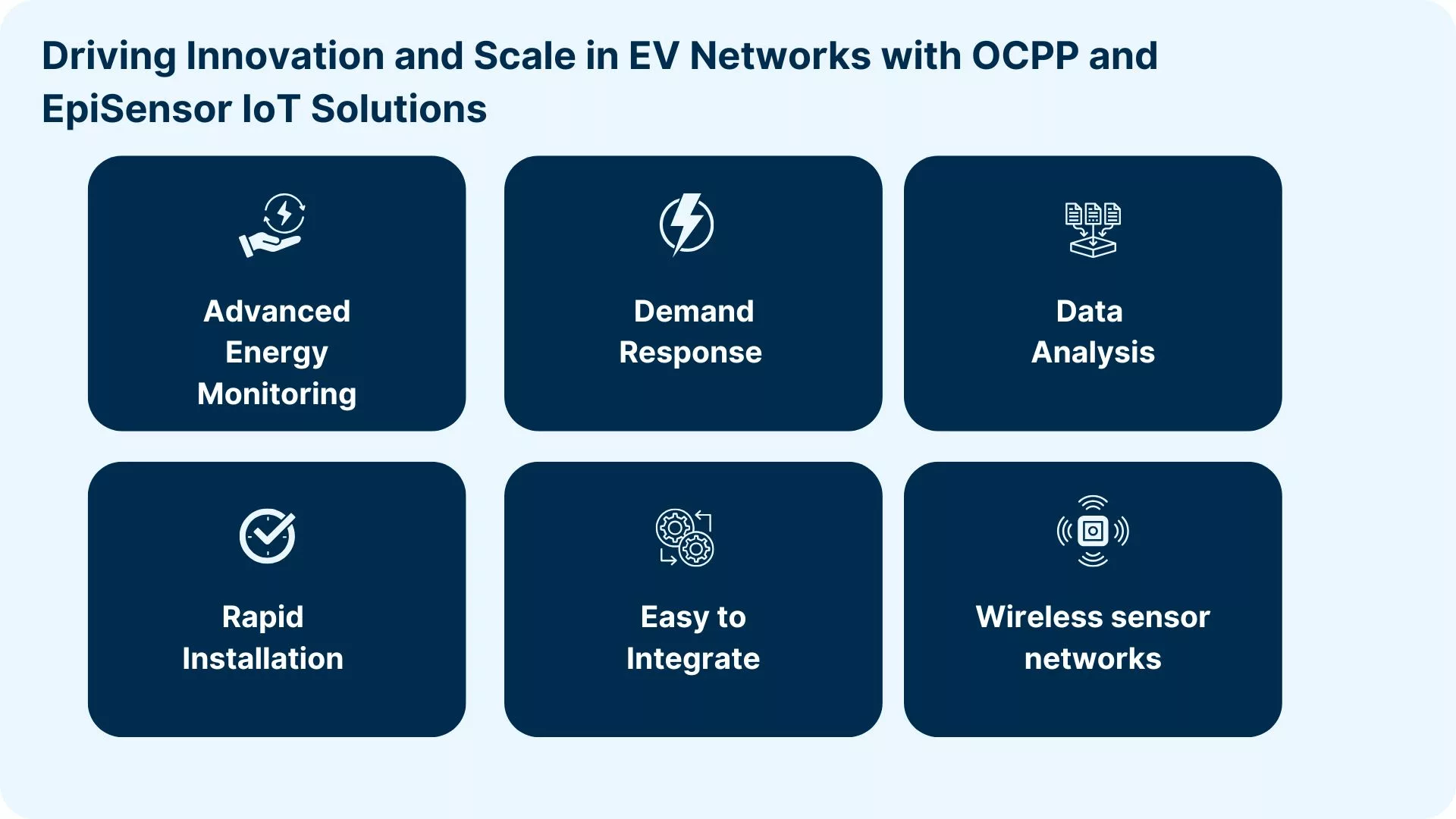
Building our EV Network Future
By incorporating EpiSensor’s solutions, organisations can enhance their OCPP-based EV charging infrastructure, improving energy efficiency, management capabilities, and overall system performance. Furthermore, we are proven to support rapid programme implementation, demonstrated in this world-first Virtual Power Plant EV network integration in Taiwan with our partner, Enel X, and Gogoro. Here, EpiSensor technology was deployed across 2,500 E-scooter battery swapping stations in just 6 weeks across the island of Taiwan. Our demand response controller balances performance with usability and ease of installation, meaning onsite electricians could rapidly deploy the system, without having to engage specialised personnel.
Ready to accelerate your EV network programmes?
Our IoT experts can help you design the systems architecture you need to build scalable, grid-friendly, EV networks
